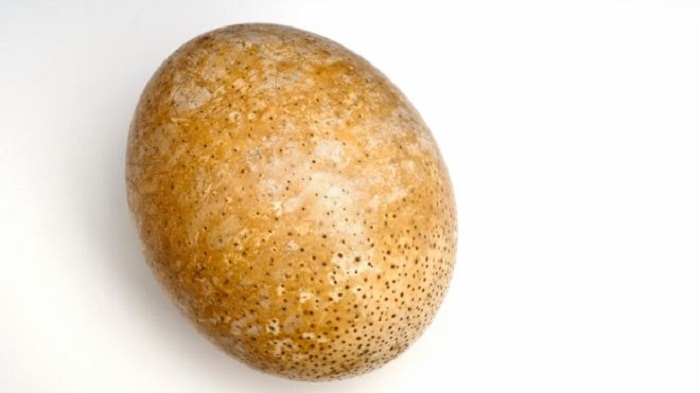These proteins, the team said, had been protected because they had been "entrapped" in surface minerals.
The findings are reported in the journal ELife.
Clues to the past
"The key thing here," said Prof Matthew Collins, from the University of York`s department of archaeology, who led the research, "is that these [proteins] have been preserved for 3.8 million years in a very hot environment [of equatorial Africa].
"To date," he added, "DNA analysis from frozen sediments [in the Arctic, for example] has been able to reach back to about 700,000 years ago, but human evolution left most of its traces in Africa and the higher temperature there takes its toll on preservation."
The researchers had speculated, though, that proteins might survive better if they were bound to solid surfaces, and so they tested that theory with the ancient eggshells, collected from well studied sites in Tanzania and South Africa.
Fragments of ostrich eggshells are abundant in Africa, and often found at archaeological and palaeontological sites.
They were used by the earliest modern humans as raw materials for carrying water or even jewellery-making.
As well as extracting complete protein sequences from the shells, the team worked with colleagues from Sheffield University to develop a computer simulation that calculated that the protein sequences survived longer when they were stabilised by strong binding to the surface of minerals that made up hard shell.
While fragments of the amino acids that make up proteins have been found in much older fossils, the whole protein sequence contains much more valuable information.
Dr Kirsty Penkman, an analytical chemist from the University of York, likened the proteins to finding a completed biological jigsaw, rather than just a single piece of a puzzle.
"Recovery of a protein sequence tells us the function of the protein," she told BBC News, "from that, we might be able to get evolutionary information."
Dr Penkman said comparing the proteins from the bones of humans` various ancient primate ancestors might now be possible.
"Rather than inferring evolutionary relationships from the shapes of bones," she said, scientists might be able to find biological barcodes of these relationships.
"Even dinosaur eggshells will now be of interest [for chemical analysis]," she said.
More about:
















































